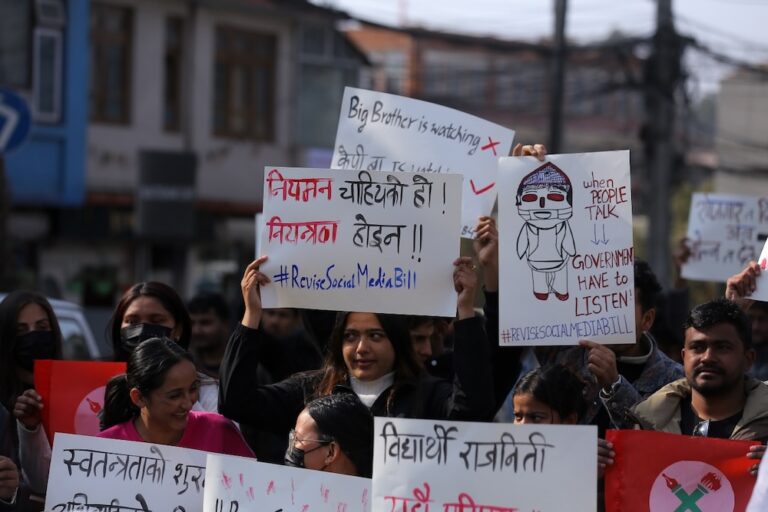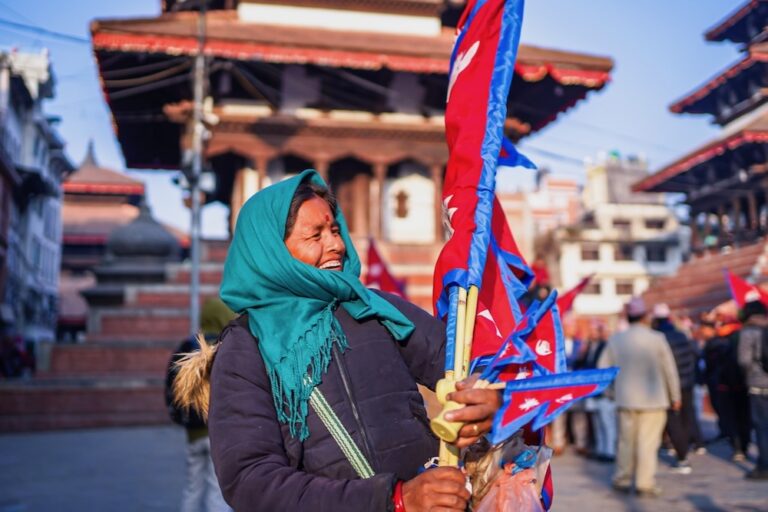(WiPC/IFEX) – The following is a 5 November 2008 WiPC press release: NEPAL: Anniversary action for murdered journalist Birendra Shah The Writers in Prison Committee (WiPC) of International PEN is appalled that one year after the murder of Nepali freelance journalist Birendra Shah, those identified as being responsible for his death still have not been […]
(WiPC/IFEX) – The following is a 5 November 2008 WiPC press release:
NEPAL: Anniversary action for murdered journalist Birendra Shah
The Writers in Prison Committee (WiPC) of International PEN is appalled that one year after the murder of Nepali freelance journalist Birendra Shah, those identified as being responsible for his death still have not been brought to justice. Birendra Shah was abducted and killed whilst investigating a report on illegal sandalwood smuggling. His body was found on 8 November 2007. He had been kidnapped by Maoist cadres a month earlier, on 5 October 2007. Maoist authorities issued a statement on 5 November 2007 confirming that members of their party were responsible for Shah’s death, and that he had been murdered on the day of his abduction.
International PEN expresses renewed concerns that journalists and writers continue to be targeted with apparent impunity in Nepal, and urges the authorities to take immediate action to ensure all crimes against journalists, including Birendra Shah, are vigorously investigated and those responsible brought to justice. PEN also reminds the Nepali authorities of their commitment to press freedom, as laid out by Article 19 of the International Covenant on Civil and Political Rights, to which Nepal is a signatory.
According to PEN’s information, Birendra Shah, a freelance journalist who worked for the publication “Dristri Weekly” as well as the privately owned Nepal FM Radio and Avenues TV, was abducted on 5 October 2007 by local Maoist cadres in the Bara district, south of Kathmandu. Following widespread protests at Shah’s disappearance by Nepali journalists, which were violently suppressed by the authorities, the CPN-Maoist party conducted an internal investigation into the kidnapping. On 5 November 2007 Maoist party leaders held a press conference at which they confirmed that Birendra Shah had been killed by their members on the day he went missing. The CPN-Maoist statement named a senior cadre, Lal Bahadur Chaudhary, and two associates, who are said to be personally responsible for Shah’s abduction and murder. Shah had gone with another journalist to investigate a report on timber smuggling when he was abducted, and prior to his death had published critical reports about local Maoists. He is said to have been targeted because of ‘personal disputes’ with Chaudhary, who reportedly fled to India to avoid arrest but has now returned to the Bara district of Nepal. The CPN-Maoist party distanced itself from the murder, stating that the three cadres were expelled from the party and were to face disciplinary action. No action has been taken to bring Shah’s killers to justice. Birendra Shah was the main bread-winner of his family, and his wife and two children are said to be suffering severe financial hardship as a result of his death.
After a ten-year long insurgency, a peace agreement was reached by the government of Nepal and the CPN-Maoist party in November 2006, in which both sides agreed to respect press freedom. However, during 2007 this fragile peace process deteriorated, tension between the army and the Maoists grew and reports of attacks on journalists and media outlets began to escalate. The Maoists withdrew from the interim government in September 2007, demanding abolition of the monarchy. Parliament agreed to this condition in December that year, and the rebels rejoined the government. The Maoists emerged as the largest party in parliament following elections in April 2008, and the monarchy was abolished a month later. A new Maoist-dominated government finally took office in August 2008.


